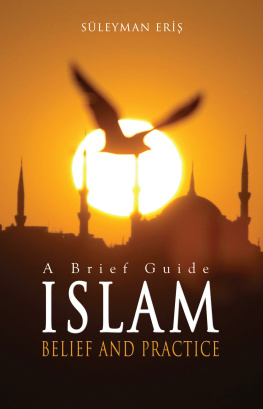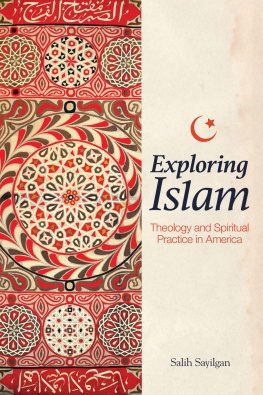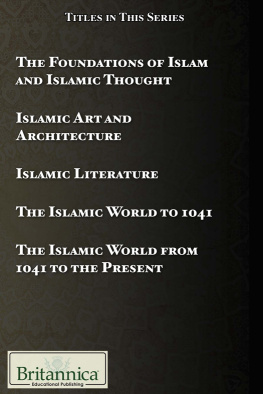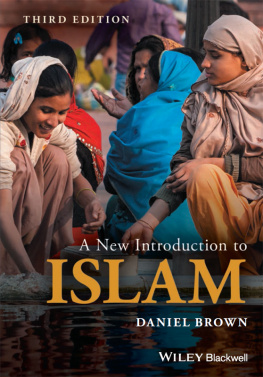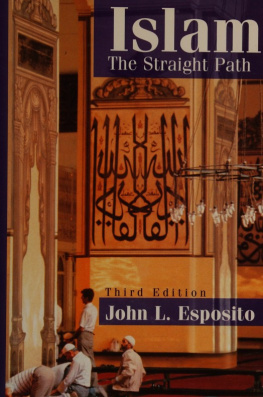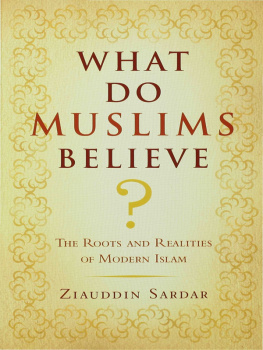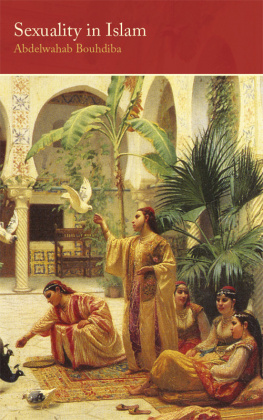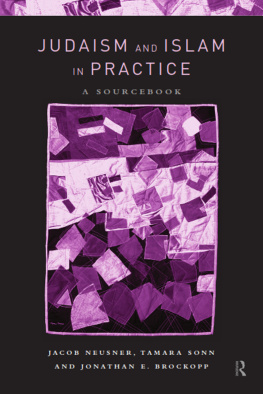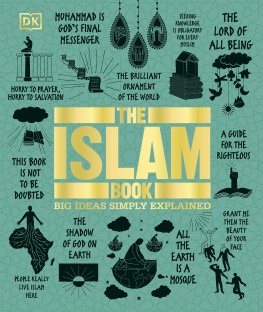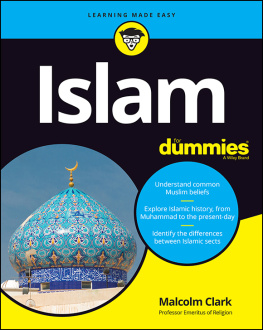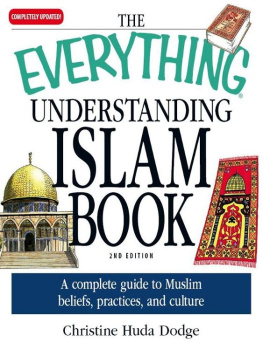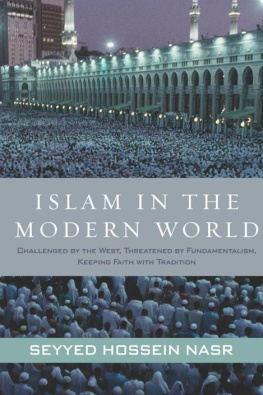Suleyman Eris - Islam: Belief and Practice
Here you can read online Suleyman Eris - Islam: Belief and Practice full text of the book (entire story) in english for free. Download pdf and epub, get meaning, cover and reviews about this ebook. year: 2006, publisher: Tughra Books, genre: Religion. Description of the work, (preface) as well as reviews are available. Best literature library LitArk.com created for fans of good reading and offers a wide selection of genres:
Romance novel
Science fiction
Adventure
Detective
Science
History
Home and family
Prose
Art
Politics
Computer
Non-fiction
Religion
Business
Children
Humor
Choose a favorite category and find really read worthwhile books. Enjoy immersion in the world of imagination, feel the emotions of the characters or learn something new for yourself, make an fascinating discovery.
- Book:Islam: Belief and Practice
- Author:
- Publisher:Tughra Books
- Genre:
- Year:2006
- Rating:3 / 5
- Favourites:Add to favourites
- Your mark:
- 60
- 1
- 2
- 3
- 4
- 5
Islam: Belief and Practice: summary, description and annotation
We offer to read an annotation, description, summary or preface (depends on what the author of the book "Islam: Belief and Practice" wrote himself). If you haven't found the necessary information about the book — write in the comments, we will try to find it.
This book is intended to open a small window into the Islamic belief and practice in order to assist beginners desiring to learn the basics of Islam. It covers the pillars of faith and the pillars of Islamic practice including prayer, fasting, almsgiving, and hajj.
Islam: Belief and Practice — read online for free the complete book (whole text) full work
Below is the text of the book, divided by pages. System saving the place of the last page read, allows you to conveniently read the book "Islam: Belief and Practice" online for free, without having to search again every time where you left off. Put a bookmark, and you can go to the page where you finished reading at any time.
Font size:
Interval:
Bookmark:
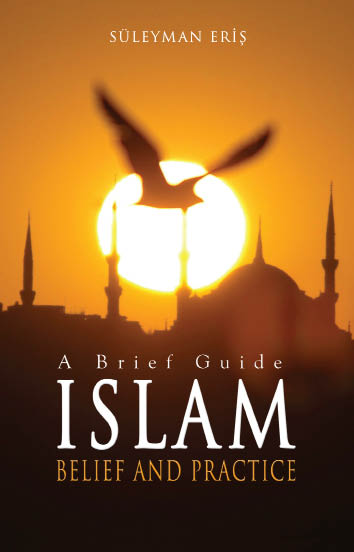
A Brief Guide
ISLAM
BELIEF AND PRACTICE
Sleyman Eri

New Jersey
2006
Copyright 2006 by The Light, Inc.
09 08 07 06 2 3 4 5
Second impression
All rights reserved. No part of this book may be reproduced or transmitted in any form or by any means, electronic or mechanical, including photocopying, recording or by any information storage and retrieval system without permission in writing from the Publisher.
Published by The Light, Inc.
26 Worlds Fair Dr. Suite C
Somerset, New Jersey, 08873, USA
www.thelightpublishing.com
Library of Congress Cataloging-in-Publication Data
Eris, Suleyman.
Islam : belief and practice : a brief guide / Suleyman Eris. -- 1st ed.
p. cm.
ISBN 1-59784-051-3
1. Islam--Doctrines. 2. Islam--Islam--Customs and practices.
I. Title.
BP165.5.E75 2006
297--dc22
2006012997
Printed by
aglayan A.S., Izmir - Turkey
August 2006
All praise is for God and may Gods blessings and peace be upon His Messenger Muhammad. This book is intended to open a small window into Islamic belief and practice in order to assist beginners desiring to learn the basics of Islam.
The book consists of three chapters. Islam The Universal Faith presents an overview of the Islamic worldview. It addresses stimulating questions such as, Who am I? and What am I doing in this world? It delivers solid information from Islamic tradition in order to answer those questions. Additionally, a small biography of the Prophet Muhammad is given to help the reader acquire an historical perspective of his role in Islam. Next The Quran and some of its aspects regarding its divine authorship and preservation are introduced. Finally, Islamic Civilization is discussed with a retrospect into history, and is accompanied by commentaries of Western scholars.
The second chapter delves into Islamic belief and its six pillars: belief in God, the prophets, the divinely revealed books, angels, resurrection, and divine destiny. The rationality of Islamic belief is explained with reference to verses from The Quran and prophetic sayings. Parables and commentaries by Bedizzaman Said Nursi enrich the content and help facilitate comprehension.
The third chapter discusses practices of the Islamic faith, which are defined as the five pillars of Islam. While the previous chapter focused on the conviction of the heart, this section, in a sense, provides information regarding the outward form of the religion: declaration of faith, prescribed daily prayers, fasting, purifying alms, pilgrimage. Texts of some of verses and prayers are available at the end of the book, with photographs demonstrating how to perform the daily ritual prayers.
I would like to thank the following colleagues who contributed to this book with their useful advice, editing, and comments: Ali nal, Bonnie Rutherford Shahin, Kathleen St.Onge, Jane Louise Kandur, Ahmet Kurucan, and Hseyin entrk.
- The Purpose of Life and Belief
- Islamic View of Mankind
- The Prophet Muhammad
- The Quran
- Islamic Civilization
Who am I? Where do I come from? What is my final destination? What does death demand from me? Who is my guide on this journey?
It is in all of these questions that the essential problem of human life lies, and our individual and collective happiness requires being able to give the correct answer to the vital questions mentioned, as well as in disciplining our faculties so that we may produce a harmonious, peaceful individual and social life. Since it is not possible for the human intellect to totally comprehend where true human happiness lies, in both this world and the next, humanity needs a universal intellect, a guidance from beyond human reason and experience, to whose authority all may assent freely. That guidance is the religion revealed and perfected by God through His Prophets. With Islam, God completed the religion He revealed and chose for humanity:
This day I have perfected your religion for you, completed My Favor upon you, and have chosen for you Islam as your religion. (Maidah 5:3)
Islam means submission to God, peace, and salvation. It is only through submission to God that one can attain the peace in both individual and social spheres, and salvation in both this world and the next. This is why all the prophets came with the same doctrine of faith, the same precepts of worship and good conduct, and the same principles for regulating social life. It is only in some secondary matters of law that they differed; and this was only in connection with the time and conditions in which they lived.
The name of the religion that encompasses this doctrine and these precepts and principles is Islam. Names of other religions were given by either their followers or by their opponents, and they were given some time after their messengers had left this world. Islam is the eternal religion and it brings nothing that is fundamentally new; instead it has come to re-establish the primordial religion, and to reaffirm the Truth, which is beyond time. As a re-establishment and a reaffirmation, Islam is a synthesis of the universal Revelation: it is the recapitulation of all the previous messages which Heaven has vouchsafed mankind. It is this which gives it its astonishing capacity to integrate, within a single community, believers of very different ethnic origins, while still respecting their particularities.
All the prophets came with Islam and communicated this message, but their followers failed to observe and preserve it, making changes to it over time. It was communicated for the final time by the Prophet Muhammad, peace and blessings be upon him, in a way that would embrace all people until the end of time. So it is only the Islam which the Prophet Muhammad preached that is approved by God as the true religion:
Say (O Messenger): We have believed in God (without associating any partners with Him), and that which has been sent down on us, and that which was sent down on Abraham, Ishmael, Isaac, Jacob and the Prophets who were raised in the tribes, and that which was given to Moses, Jesus, and all other Prophets from their Lord; we make no distinction between any of them (in believing), and we are Muslims (submitted to Him wholly and exclusively). (Al Imran 3:84)
It is important to note that the Prophet Muhammad is not the founder of Islam, but the Messenger of Islam. Islam is the natural way of life. God is the originator of Islam, and Adam, the first person on earth, is the first Muslim. Likewise, the Prophet Abraham, who lived 2,500 years before the Prophet Muhammad, is called a Muslim in the Quran (Al Imran 3:60). All the prophets carried the same message from Godthe message of Islam, of peace and piety.
In its most fundamental aspect, Islam is epitomized in the most frequently recited of all Quranic phrases, the Basmala or Bismillahir-rahmanir-rahimIn the name of God, The Merciful, The Compassionate. God manifests Himself via His absolute, all-inclusive Mercy and Compassion, and Islam is founded upon that affirmation. The Quran calls the Prophet Muhammads mission a mercy for all the worlds (Hajj 21:107).
Since the One God is Infinite and Absolute as well as the Infinitely Good, He could not but create. His infinitude implies that He contains within Himself all possibilities, and such possibility had to be realized in the form of creation. It is in the nature of the good to give of itself, and the Infinitely-Good could not but radiate the reality that constitutes the world.
Font size:
Interval:
Bookmark:
Similar books «Islam: Belief and Practice»
Look at similar books to Islam: Belief and Practice. We have selected literature similar in name and meaning in the hope of providing readers with more options to find new, interesting, not yet read works.
Discussion, reviews of the book Islam: Belief and Practice and just readers' own opinions. Leave your comments, write what you think about the work, its meaning or the main characters. Specify what exactly you liked and what you didn't like, and why you think so.

